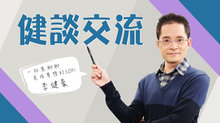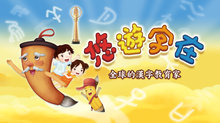【新唐人2011年9月2日訊】中國多家環保組織8月31號聯合發佈調查報告,指責蘋果公司漠視在華供應商污染和毒害,以犧牲環境和公眾健康為代價,生產「毒蘋果」和「血蘋果」,攫取超額利潤。香港一個民間團體也發出聲明,呼籲蘋果新總裁庫克能夠解決蘇州一家蘋果供應公司137名工人中毒問題。
中國五家非政府環保組織31號發表名為《蘋果的另一面2:污染在黑幕下蔓延》的報告,指出1月20號就已發佈了第一份報告,但是,蘋果公司一直不回應在華供應商的一系列污染問題。
兩次調查中,環保組織發現了27家在華蘋果供應商存在嚴重環境問題。但是,蘋果公司發佈的《2011年供應商責任報告》中,沒有發現一例環境污染問題。
報告列舉了江蘇昆山的凱達電子和鼎鑫電子,因排放毒氣被反覆投訴,鄰近一個村2000年以來就有20名村民患癌症或因癌症死亡,無助的村民們手持污水水樣,跪求制止企業污染。
台灣鴻海集團投資的富士康也在污染企業之列。今年5月,成都富士康生產蘋果iPad2的工廠發生爆炸,造成3死15傷。
報告指出,蘋果在華供應商排放含重金屬、氰化物的廢水、錫煙、鉛煙等多種污染物,產生「牛奶河」,重金屬超標近200倍。因環境違法問題被立案查處高達十多起。
蘇州的聯建科技公司隸屬台灣勝華科技股份有限公司,這家公司在全球手機液晶屏業界中佔據重要地位,主要生產中小尺寸液晶觸摸屏,目前是蘋果重要代工商。
這家公司使用一種更有效的新型屏幕清潔劑,其中含有的正己烷,是一種會對神經系統造成損傷的化學毒素。
年僅26歲的工人郭偉強進這家公司才一年多,就和其他136名工友2009年中毒,有些女工友暈倒在全封閉的車間裡,他們神經受損,腳經常抽筋,喪失了大部分勞動能力。郭偉強住院8個半月。
郭偉強(聯建科技公司中毒工人):「表現在四肢麻木,小腿腫脹,還有四肢無力,站立一段時間也會覺得很纍的。現在大部分都已經離職了,中毒的那個新聞媒體報導的是137名,住院的大概有60多名。」
2010年1月,聯建科技公司2千工人舉行罷工。今年2月,在公眾壓力下,蘋果首度公開承認在華供應商有130多名工人因污染導致健康受害,但是蘋果始終沒有拿出解決方案。
郭偉強:「也沒有甚麼表示嘛,現在我們的身體出現復發,蘋果公司也沒有一點表態。我剛進廠的時間是底薪850元,然後加班,加班越多也就工資越高,剛開始的時間,一年平均工資也就是(每月)一千多,一千五、六吧。」
香港「大學師生監察無良企業行動」日前發表聲明,呼籲喬布斯的接班人庫克能夠承擔起企業社會責任,妥善處理中毒員工賠償問題。
鄭依依(香港「大學師生監察無良企業行動」項目幹事):「他們是不斷向他的公司和蘋果一直髮出信息,要求處理他們的賠償,包括他們寫了3封公開信給蘋果前任總裁喬布斯,但是一直到現在,都還沒有得到蘋果公司任何的回應。」
這家公司另一名中毒工人賈景川表示,蘋果自詡是綠色企業,而喬布斯對工人中毒如此漠視,反映了蘋果只追求公司利潤,卻無視工人健康的醜陋一面,
環保組織「自然之友」總幹事李波批評說,蘋果一直以自負的態度,非常抗拒和中國的環保組織對話,在20多家大型IT公司對供應商監管問題上落在最後一位。
在各方批評和關注下,沉默多時的蘋果終於做出反應稱,環保組織報告中提交的27家污染企業有好幾家不是蘋果供應商,並表示願意與環保組織對話。
公眾環境研究中心主任馬軍指出,既然無視環境成本所帶來的超額利潤大多被蘋果拿走,它就沒有理由把污染的責任推得一乾二淨。如果蘋果選擇逃避並使用污染企業做供應商,「這就應該看作是蘋果公司蓄意所為。」
新唐人記者常春、李元翰、王明宇採訪報導。
====
Apple』s Chinese Suppliers』 Poisonous Apples
Several environmental organizations in China
jointly issued an investigation report on August 31.
It accused Apple Inc. of ignoring its Chinese suppliers』
pollution to produce 』poisoned』 and 』blood-stained』 products
and grabbing big profits at the cost
of environment and public health.
A Hong Kong-based NGO also made a statement to urge
Apple Inc.'s new CEO Tim Cook to resolve the issue
with the poisoning of the 137 workers
in an Apple Inc. supplier outlet in Suzhou, China.
On August 31, five Chinese environmental NGOs
released a second report, titled:
“Pollution Prevails under the Dark Curtain—
the Other Side of Apple.”
The report points out that the first report was issued
on January 20 but hasn』t received Apple』s response
to a series of allegations for pollution problems
caused by its Chinese suppliers.
Through two surveys, the environmental groups found 27
of Apple』s suppliers in China causing environmental issues.
However, Apple』s "2011 Supplier Responsibility Report"
says no case of environmental pollution has yet been found.
The NGOs』 report gave facts of Kaida Electronics
and Unimicron Technology in Kunshan, Jiangsu province.
Both factories suffered repeated complaints
from emissions of toxic gasses.
Since 2000, 20 villagers in a nearby village
have suffered of or died from cancer.
Helpless villagers held sewage samples and kneeled down
to ask for an end to the industrial pollution.
Foxconn, anchored by Taiwan's Hon Hai Group,
is also one of the polluting enterprises.
In May an explosion occurred in Chengdu』s Foxconn factory,
producing the iPad2, killing three and injuring 15 workers.
The report notes that Apple's suppliers in China
discharge a variety of pollutants, including heavy metals,
cyanide wastewater, tin smoke, lead smoke and the like,
causing the local water stream to became “inky black,”
and the level of heavy metals to exceed
nearly 200-fold the legal standard.
More than a dozen cases were filed and investigated
regarding the violation of environmental laws.
United Win Technology in Suzhou, owned by Taiwan WinTek,
a key world maker of LCD screens for mobile phones,
is an important manufacturer
of small-size LCD touch screens for Apple products.
The company uses a more effective new screen cleaner.
The product contains N-hexane,
a toxic chemical that can cause
harm to the human』s nervous system.
Guo Weiqiang, aged 26, worked in this company for just
over a year and was one of the 137 workers
who was poisoned in 2009. Some female workers
even fainted in the completely closed workshop.
They suffered from nerve damages and often had cramps
in their legs. Many of them have lost the ability to work.
Guo Weiqiang was hospitalized for over eight months.
Guo Weiqiang (poisoned worker of United Win Technology):
“The symptoms are numbness, legs swelling and weakness.
Even standing for a little while can make me feel very tired.
Now most of the workers have left the company.”
The figure of the poisoned workers was reported to be 137,
and about 60 of them were hospitalized.
In January 2010, 2,000 workers of United Win Technology
went on strike.
Under public pressure, in February, for the first time Apple
acknowledged publicly that its Chinese supplier』s pollution
had made more than 130 worker victims. However,
since then Apple has not come up with any solution.
Guo Weiqiang: “The company did nothing to address
the issue. Now the relapses occur on our bodies,
but Apple does nothing about this. When I began to work
at this company, my basic salary was RMB 850,
then I worked overtime, because the more the overtime
work is, the higher the salary becomes.
At that time, the average annual salary was
over RMB 1,000, about RMB 1,500 or 1,600.”
Hong Kong-based nonprofit organization “Students
& Scholars Against Corporate Misbehavior” (SACOM)
recently issued a statement that urged Apple Inc.』s
new CEO Tim Cook, the successor of Steve Jobs,
to assume corporate and social responsibility and handle
properly the issue of poisoned workers』 compensation.
Cheng Yiyi (SACOM』s project officer): “They kept contacting
their company and Apple, asking for the compensation.
They even wrote three open letters to Apple』s ex-CEO
Jobs, but until now they haven』t received any response.”
Jia Jingchuan, another poisoned worker said
that Apple prides itself of being a green company.
But Jobs disregarded so many workers』 poisoning cases,
which reflects Apple 』s ugly side
of only caring to pursue profits
but ignoring the workers' health, points out Jia.
Li Bo, Director-General of an environmental group
"Friends of Nature,” criticized Apple Inc. too.
He thinks Apple has always shown a conceited attitude,
resisting dialogue with China』s environmental organizations.
Out of over 20 major IT companies, Apple Inc. is last
in the list of meeting the suppliers regulations in China.
Under the pressure of criticisms and public concerns,
Apple Inc. finally broke its silence and responded
that among the 27 polluting factories in the environmental
groups』 report were some that are not Apple』s suppliers,
and that Apple was willing to have a direct talk
with the environmental organizations
Ma Jun, Director of Public & Environmental Affairs Institute,
points out that since Apple grabs the excess profits
at the expense of the environment, it is not reasonable
to shirk responsibility for its pollution.
Should Apple Inc. continue to use
these polluting companies as suppliers,
“This can only be seen as a deliberate refusal
of taking responsibility,” concludes Ma Jun.
NTD reporters Chang Chun, Li Yuanhan and Wang Mingyu
看下一集

【禁聞】中國月餅「內外交困」

【禁聞】北京兩報遭降級 中共再壓敢言媒體

【禁聞】美國“皇叔”被拘 白宮:與庶民同罪

【禁聞】中共拒認“利比亞過渡政府”

【禁聞】自稱毛澤東孫“認祖歸宗” 中共不認

【禁聞】北京「最適合居住」?

【禁聞】間諜視頻引各國關注 環球時報滅火

【禁聞】我們要讀書:民工子弟夢碎北京

【禁聞】中國政治與經濟制度 沙灘大廈之危

【禁聞】中資12億美元收購美棒球隊

【禁聞】利益掛帥 外媒稱中共「變色龍」

【禁言博客】當吃豬肉成為奢望

【禁聞】《賽德克.巴萊》 兩岸影評大不同

【禁聞】不怕打壓 異議人士投入大選舉

【禁聞】「騎牆外交」 利斥中共阻解凍資產

【禁聞】「八萬哥」一餐8萬 上中央黨校吃喝





 財經趨勢4.0
財經趨勢4.0 新聞大破解
新聞大破解 新唐人財經新聞
新唐人財經新聞 選戰大透視
選戰大透視 遇見新聞
遇見新聞 老外看中國、老外看台灣
老外看中國、老外看台灣 美麗心台灣
美麗心台灣 田美女奉茶實客
田美女奉茶實客 廚娘香Q秀
廚娘香Q秀 大千世界
大千世界 1000步的繽紛台灣
1000步的繽紛台灣 好樣!Formosa
好樣!Formosa 健康1+1
健康1+1 談古論今話中醫
談古論今話中醫 我的音樂想想
我的音樂想想 胡乃文開講
胡乃文開講 她健康She Health
她健康She Health 天庭小子-小乾坤
天庭小子-小乾坤 總統教育獎
總統教育獎 全國孝行獎
全國孝行獎 健談交流
健談交流 悠遊字在
悠遊字在 傳奇時代
傳奇時代 音樂大賽特別節目
音樂大賽特別節目









